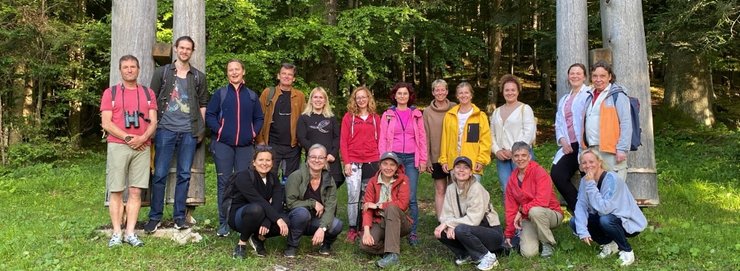
This learning, teaching, and training event took place at the Primary school OS OB RINZI in Slovenia 8 - 10 of June 2022. The school has their own vegetable garden and fruit trees and uses the vegetables and fruits in the school kitchen. This alternative arena for teaching and learning was highlighted at this three-day event. The main goal of each teaching and learning event for this project is to highlight what is unique in the Storyline approach, and how this uniqueness will support teaching and learning about issues of sustainability.
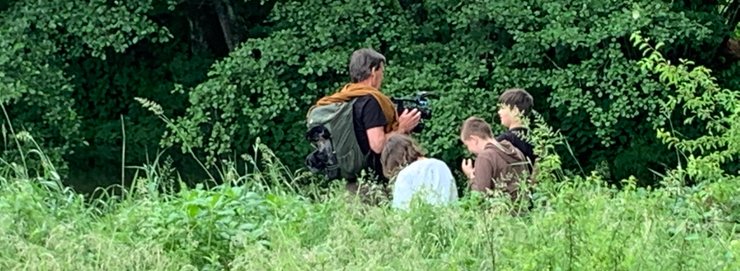
In Slovenia, the focus was alternative learning environments, ecological food production and consumption, and cooperation with the local community. The event included a combination of lectures and out- and indoor workshops that focus on these items that support the innovative teaching and learning arenas needed to address the complexity of sustainable development and climate change. Primary school OS OB RINZI was chosen as the venue for this event because they have experience with alternative learning approaches both inside and outside of the school classroom.
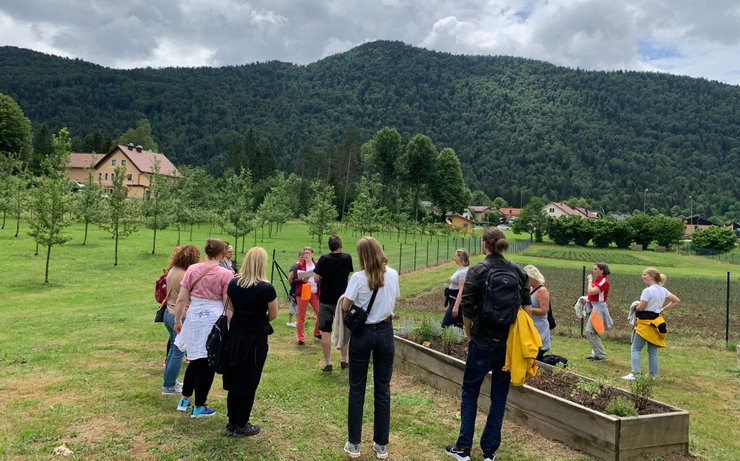
Outdoor pedagogy, entrepreneurial learning and active learning are used at Primary school OS OB RINZI, and we had the opportunity at this event to explore how these can be effectively incorporated with the Storyline approach and used for learning and teaching for sustainability. Teachers at this school along with other members of the project group provided the content for the lectures, content that was both practical and theoretical.
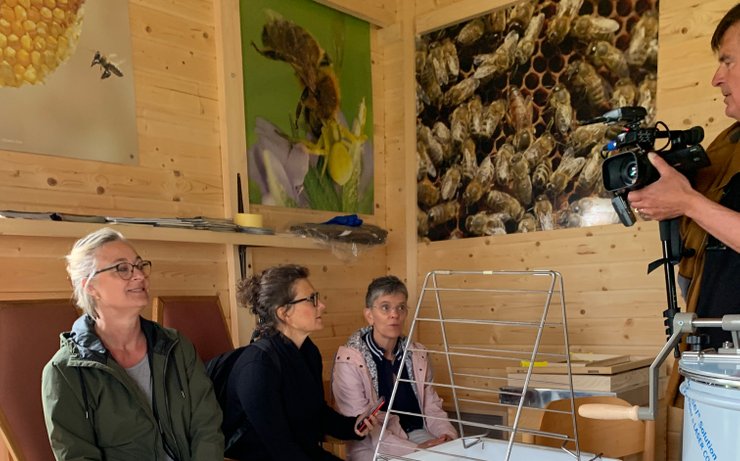
All school activities were presented at the international gathering to 14 representatives of Erasmus+ partner organizations. The participants were impressed by the performance and sustainable pulse of the school. Katja Ilc Virant and Mateja Vidrih presented the guests an alternative outdoor learning environment, which is used at the school. The group discussed the experience with the different learning environments used in the Storyline approach, with an emphasis on self-care and cooperation with the local community.
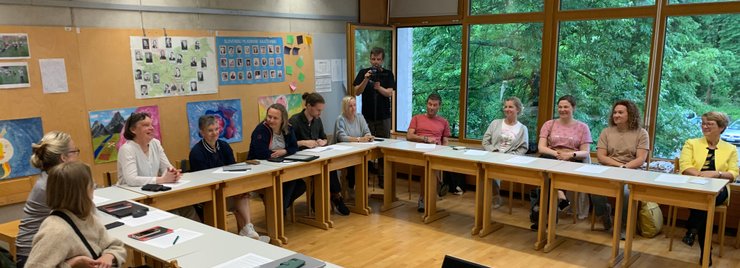
The goals for the event in Slovenia, 2022 was the following:
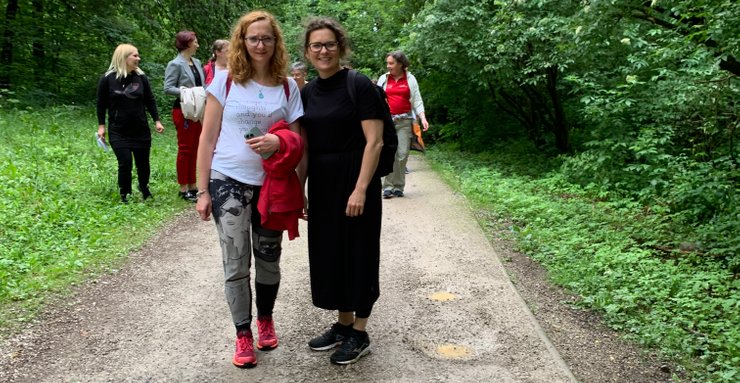
The goals were visualized and processed in the different sessions (follow link to the detailed program of the event) during the three days in Slovenia. A lot of important discussions also took place during the more informal discussions e.g. during lunch breaks and outdoor visits. The participants really enjoyed the possibility of finally meeting face to face. “It's rewarding to collaborate with such a mixed group of people, particularly teachers that are eager to share their experience. We learn from each other in a different way when spending days together.”
Program:
https://docs.google.com/document/d/1n7j80vPK8Wi1tOlFyoD2FHIh8WWXvuez3xQ1tabVjvU/edit?usp=sharing
Outcomes from the learning and teaching event
1. Outdoor learning and other alternative learning environments
The discussion started with a group conversation where the participants tried to reach a common definition of the concept “alternative learning environment”. A summary of the discussion was that alternative learning environments could be everything that is not frontal one-way teaching. So alternative learning environments can be a change of classroom setting, digital surroundings, classroom surroundings (such as creating the setting in a Storyline), moving to somewhere in the local community or of course outside. Alternative learning environments challenge and facilitate knowledge acquisition and the environments can be both inside and outside the classroom.
We all agreed that this school had an unique outdoor area with different kinds of biotops and cultivation areas.Being able to follow the cultivation process as a student helps the students to understand the process from seed to crop. It will be an experience for real. The work is crucial, for example, to understand the circle of life. Creating a relationship to the nature/world around us is crucial if we want the students to be engaged in supporting sustainability. “We don't help what we don't know or love.” According to one of the participants our visit to the forest gave a strong feeling of being a part of something bigger and many other of the participants commented on the calmness and peacefullness in the forest.
Being out in their immediate area can help students create a place of identity. Learning outdoors is a holistic way of learning- from small types of projects to larger projects and it involves many school subjects. We need to be much better in using the school surroundings in the learning process, not only for walking, but for active learning about environmental issues and e.g. food security. It cannot be learned from a textbook. One problem may be that not all teachers are convinced of the advantages in having outdoor teaching and the question is how do we involve more teachers in this approach.
According to the participants, different Storyline projects can benefit a lot by using alternative learning environments and vice versa.
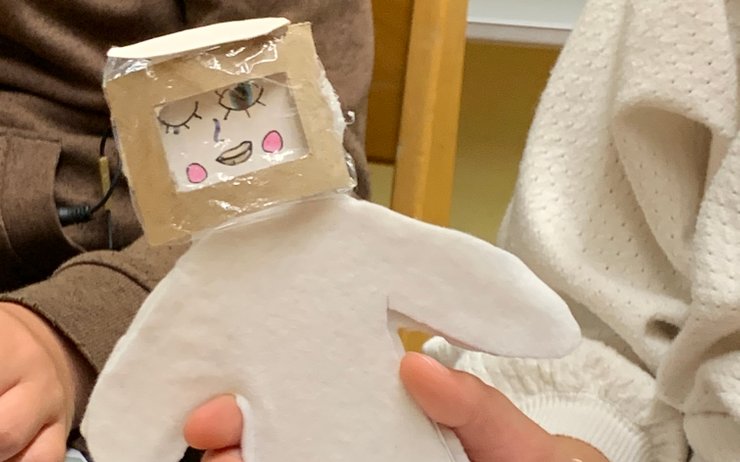
Storyline can reconnect children with nature in many ways due to its episodes, activities and key questions. The storyline about bee hives gave us a good example of that. Any opportunity to move the learning away from frontal teaching is important for motivation and engagement. Storyline as an approach does this intrinsically. However, reminding ourselves to move the Storyline experience to our local community and the natural surroundings of the school makes the Storyline approach an even more powerful tool to help develop the relationships we need to work towards sustainability.
2. Organic food production as a way of learning about sustainability
The students in the school got to see and experience how everything is connected. They planted trees that benefit bees and bumblebees and they saw how these pollinate and finally how the fruit grows. The students were able to follow the entire process.
By enabling the children to learn how to produce food locally and to use it in the school is sustainable and contributes to local food security in the long term. By planting our own food - even in a small scale - we create a relationship between planting, taking care of the plants, eating, and our own well-being. Children and young people need to see and experience the entire process in order to create knowledge (and skills). All of this supports the cyclical approach and the understanding of how nature and man can best work together. As for resilience, knowledge of how to grow our own food is of course a part of being resilient. In today's situation with war in Ukraine and the coming food shortages, food production is even more important.
3. Cooperative and entrepreneurial learning as a framework for building working teams with local community members
Beekeeping has an important role in Slovenian history. The students in the schools have been able to create a Storyline-project about the bees. The storyline was inspired by expert people, the beekeeper, and of course by having own beehives next to the schoolyard. The students get to participate in something bigger and gain a greater understanding and a context. The tradition of bees perhaps gives the beekeepers a hope of passing this tradition on to the next generation. The participating students and teachers get a greater context. It becomes important for the traditions of one's own country. To feel pride in what one does and can do and to see the importance of passing them on.
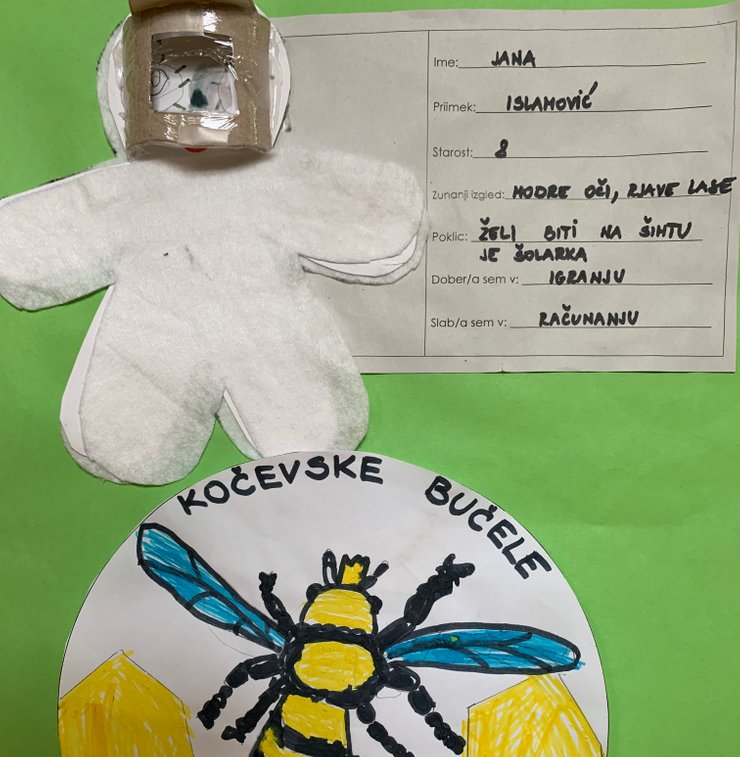
In this school the students had several opportunities to cooperate with local companies and authorities as well as with partner schools abroad. This gave us as guests inspiration to discuss how entrepreneurial learning could be developed in future Storyline projects.
Building a community connection in our Storylines could be a requirement. The connection not only builds the relationship we need to work together, but it also creates an immediacy of what we do in school is relevant for the pupils when they leave the schools. All Storylines create opportunities to create something of value for someone else, e.g. Sustainable market (ecological dimension), Farmhouse (ecological dimension), New neighbors (social dimension) Beehive (ecological, economic and social).
In the Storyline work, questions are naturally created where the students need to seek answers by contacting people in the immediate environment. The students can make contact either as a start or during the course of the work with the actors who may be viable. They can interview entrepreneurs, make reports, contact newspapers or television.
4. Students’ capacity of action and sense of agency
The students need to experience that it is possible, there is hope, and to see the possibilities. When the students learned that their bees were infested with vermin, they became really worried about their bees. Then they were given the opportunity to feel hope when together they found solutions to the problem. And then the satisfaction when they manage to solve the problem and thus know that they have helped save the world teaches them that it is possible and that they themselves have the power to act and act.
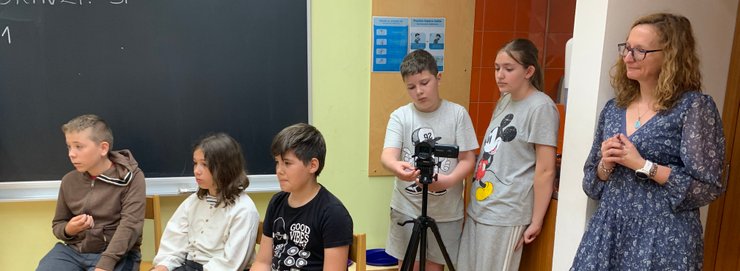
Teaching in an environment of respect and value on relationships between the classroom members, teachers and pupils, teachers and teachers and the school and the community. When this respect and relationship has been established, then an environment of being able to learn from mistakes to encourage divergent thinking is a cornerstone to sustainability and resilience. The student's sense of participation can be supported e.g. through open questions, themes that feel important to the student, the opportunity to see concrete results of the work, challenges at the right level, a good classroom climate where it is ok to put forward your own ideas and questions. The students need support during the process with different skills (problem solving skills, social skills, how to listen, argumentation skills ..).
To increase the action competence of pupils is important and storyline has the potential for doing so through a fictive setting and the use of characters creating "as-if" experiences that can strengthen pupils' action competence for future action.
As a summary, outcomes from the Slovenian Event included lots of practical information for schools who wish to work more with the local society, for schools interested in using their outdoor areas as a learning environment, and for teachers needing guidance in using cooperative learning in the Storyline approach. In addition, the event as expected culminated with discussion and reflections that will be made into an informational film. The discussions also gave empirical material for further use in the research of the Storyline approach.
The group didn't manage to fulfil a plan for what tasks the participating partners will be asked to follow until the final meeting. There was not enough time to discuss outcomes and empirical material from the project and make plans for the development of the resource bank. Neither was there enough time to discuss storyline projects and cooperation with different participants in different countries. The third transnational project meeting on site in Slovenia was therefore postponed to Autumn 2022 (October).
The European Commission's support for the production of this publication does not constitute an endorsement of the contents, which reflect the views only of the authors, and the Commission cannot be held responsible for any use which may be made of the information contained therein.